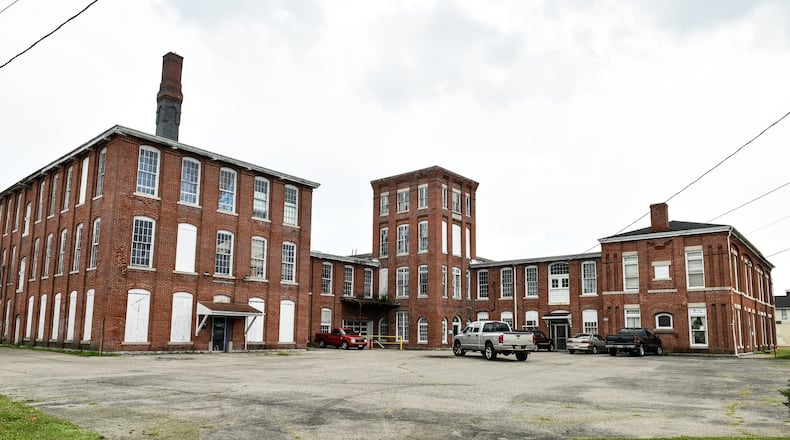The developer wants the city to buy the property for $650,000 and hold it while Bloomfield/Schon seeks national and state historic tax credits and a new type of incentive called Transformational Mixed Use Development Credits. If the developer lands those credits, the city would sell the property to the developer for $1. Smith in a report to council said the project would improve what now is a four-acre eyesore.
The city also would pay the developer a $695,000 grant once the property is transferred.
If the developer weren’t able to receive the historic tax credits, the city could pay $1.5 million to make up for that, possibly using federal American Rescue Plan Act funds, although, “they have never not received a historic tax-credit grant once they’ve applied for it,” Smith said.
Doerflein, the owner of Heaven Sent, a group of businesses on Pleasant Avenue that includes a coffee shop, gift shop, religious bookstore, wedding chapel and banquet hall, said she sees the former woolen mill every day, and, “I’m really ticked about it. I’m hoping that it goes through.”
“I love that old building,” she said. “It’s not an eyesore. I love it. It’s like a grand old lady.”
“I’ve been praying for that since back, a few years ago, when they had a meeting at our banquet hall,” said Doerflein, who has an old photo of the building when it was more beautiful, and had a fountain out front.
“I have a love for Lindenwald and a love for that building,” Doerflein said. “I think it’ll probably bring more people to the area.”
She said she was told that when the Hamilton Plaza was built, “it broke Lindenwald, because people started driving to the plaza.”
She and others are hoping for a rebound, partly because the city, having revitalized its downtown and Main Street corridor, now is expanding its focus to Lindenwald, and partly because when 10,000 or more athletes and their families begin arriving some weekends next year to the gigantic Spooky Nook Sports Champion Mill, there will be more potential customers for shops, restaurants and services.
Smith in his presentation to council noted Lindenwald is the most populous of the city’s 17 neighborhoods and has Hamilton’s third-largest business district, after the downtown and Main Street business corridor. The city also has recently bought properties in the business district to help develop storefronts there.
“We believe it’s time to start putting some resources into Lindenwald,” Smith said. “For many years, we’ve tried to find different developers.”
Smith said the city has been talking with Miami University about its Hamilton campus, and the area where the mill building is located “is very important to them, it’s very important to Lindenwald, it’s very important to Hamilton,” he said.
The city recently worked with a Miami planning class, which prepared a plan to better connect the campus with the neighborhood, as the university continues expansion efforts, and, “the housing and commercial piece is very important to them,” Smith said. He showed council photos of projects Bloomfield/Schon, which would be the lead developer, has created.
City staff said Cincinnati-based Bloomfield/Schon was the design and development company that transformed the American Can Lofts in Cincinnati and the Peters Cartridge Factory in Maineville. The developers would have 24 months after receiving the tax credits to finish the project.
“This project will be catalytic for reinvestment in Lindenwald,” a staff report to council predicted.
About the Author

